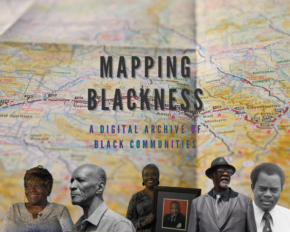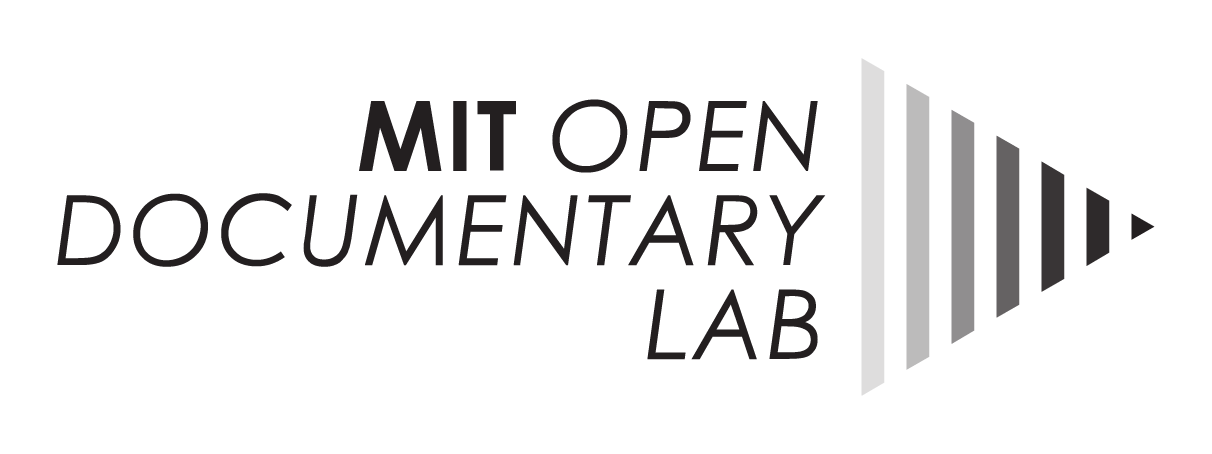24 Sep Meet Carla LynDale Bishop: MIT & Black Public Media’s Inaugural Joint Fellowship Recipient
Cambridge, Mass. (September 23rd, 2020) — Carla LynDale Bishop is the inaugural recipient of the MIT & Black Public Media Fellowship, hosted by MIT Open Documentary Lab (ODL) and sponsored by MIT Center for Art, Science, & Technology (CAST). This new fellowship opportunity is a result of a strong partnership between ODL and Black Public Media that commenced over a year ago, and MIT CAST, which makes artist residencies at MIT possible.
“We are thrilled that Carla has joined our lab and that we have a new fellowship at ODL specifically for Black creatives. We need more Black and Brown voices and perspectives in the immersive documentary field. We look forward to working with Carla and supporting her project, Mapping Blackness, that puts forgotten or unknown Black communities back on the map,” said Sarah Wolozin, Director of MIT ODL.

Carla LynDale Bishop headshot
Bishop is a filmmaker and assistant professor in Digital Storytelling at The University of Oklahoma. In 2013, she founded, Focused.Arts.Media.Education., an organization that trains youth how to make media that matters in their communities through in-school residencies, summer workshops and community-wide documentary projects. Bishop’s work explores ways that media can be used to bring communities together and promote social change. Whether through an outdoor community screening or a documentary presentation produced by local youth, her work brings people together, sparks dialogue, and affirms the stories and legacies of those often left out of mainstream media.
The joint fellowship is a first for Black Public Media and MIT, who created this fellowship for a Black documentarian, artist, journalist, or creative technologist who is using emerging technologies or old technologies in new contexts. The purpose of the fellowship is to make available the resources of the lab, the most important of which is a community of documentarians, artists, journalists, technologists and scholars who are using and interrogating emerging technologies and co-creative processes. Bishop will be in virtual residence at the lab for 4 months researching and developing her project and taking it from conceptualization to prototype.
“CAST is delighted to join forces with Black Public Media and Open Documentary Lab to bring rising talent in Black media production to MIT. As the inaugural fellow in this new initiative, Carla Bishop and her project, Mapping Blackness, will bring a new vision and a distinctive voice to the extraordinary community of fellows that ODL brings together each year,” said Leila Kinney, Executive Director of Arts Initiatives and MIT CAST.

During the fellowship, Bishop will work on producing an immersive geo-locative media project titled, Mapping Blackness. This digital mapping platform chronicles historically black communities that are often left off of maps utilizing geotagging, Augmented Reality, 360 video, data visualization and traditional documentary storytelling. Mapping Blackness is a continuation of previous projects and aims to put more black communities on the map using ArcGIS technologies and co-creation methodologies between community members, technologists, students, and filmmakers.
Mapping Blackness is inspired by and integrates historically Black communities in Northeast Ohio and North Texas, documented by Bishop. The goal of Mapping Blackness is to celebrate, preserve and honor the histories and legacies of these communities. Through previous projects, Bishop realized the need to create an online resource to document and exhibit these stories while creating a space to add future stories and future communities. Mapping Blackness will make these stories accessible, shareable, bite-sized, and interactive.
“One of the things that excites me most about this collaboration with MIT is the opportunity to remove a major and unintended barrier to participation in arts fellowships and residencies for Black creatives, which was the requirement to relocate for the duration of the program. The pandemic has, essentially, forced gatekeepers to redesign their programs, opening them up to qualified filmmakers and artists who would have been unable or unlikely to apply under normal circumstances. I hope structural innovations, such as remote fellowships, continue after the lockdown ends,” said Lisa Osborne, Director of Emerging Media Initiatives at Black Public Media.
About Black Public Media
The mission of BPMplus is to lower and eliminate barriers to entry for Black storytellers and increase their participation in extended reality and other emerging tech industries. Black Public Media is a 40-year-old nonprofit that supports Black filmmakers. BPM funds and distributes content about the Black diaspora. The company is based in Harlem.
About MIT Open Documentary Lab
Drawing on MIT’s legacy of media innovation and its deep commitment to open and accessible information, the MIT Open Documentary Lab brings storytellers, technologists, and scholars together to explore new documentary forms with a particular focus on collaborative, interactive, and immersive storytelling. OpenDocLab is based in Cambridge, Massachusetts.
About MIT’s Center for Art, Science & Technology
A major cross-school initiative, the MIT Center for Art, Science & Technology (CAST) creates new opportunities for art, science and technology to thrive as interrelated, mutually informing modes of exploration, knowledge and discovery. CAST’s multidisciplinary platform presents performing and visual arts programs, supports research projects for artists working with science and engineering labs, and sponsors symposia, classes, workshops, design studios, lectures and publications. The visiting artists program is a cornerstone of CAST’s activities, which encourages cross-fertilization among disciplines and intensive interaction with MIT’s faculty, students, and researchers. CAST is based in Cambridge, Massachusetts.



